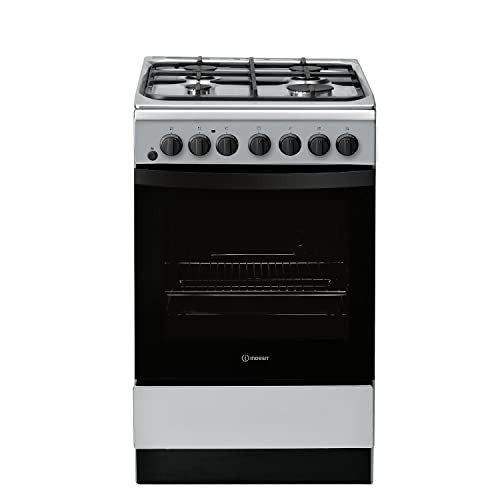10 Apps To Help You Control Your Oven Hobs
The Essential Guide to Oven Hobs: Selecting the Right One for Your Kitchen
When it pertains to home cooking, few appliances are as important as the oven hob. This flexible piece of equipment is necessary for a range of cooking methods— boiling, frying, simmering, and sautéing. Provided the myriad of alternatives available on the market, picking the ideal oven hob for one's kitchen can be daunting. This article aims to supply an extensive take a look at oven hobs, discussing their types, functionalities, advantages, disadvantages, and essential factors to consider when buying one.
Understanding Oven Hobs
Oven hobs, frequently understood as cooktops, are flat cooking platforms that feature burners or heating components. They can be integrated with an oven or stand-alone. The option of an oven hob can substantially affect cooking effectiveness and benefit.
Types of Oven Hobs
Oven hobs are available in various types, each with distinct functions. Below are the most typical types readily available:
Type
Description
Benefits
Drawbacks
Gas Hobs
Utilizes gas or lp
Immediate heat and exact temperature level control; works well with all cookware
Needs a gas connection; less energy-efficient than electric
Electric Hobs
Use electric coils or convected heat
Easy to clean up; constant heat distribution
Slower to warm up; can be less responsive than gas
Induction Hobs
Utilizes electromagnetic fields to heat pots and pans straight
Fast cooking; energy-efficient; simple to tidy
Needs compatible cookware; generally more costly
Ceramic Hobs
Flat glass-ceramic surface area with convected heat
Visually pleasing; simple to tidy
Can be vulnerable to scratching; slower to heat than induction
Secret Features of Oven Hobs
When selecting an oven hob, a number of features need to be considered:
Size & & Configuration: Available in different sizes, oven hobs can accommodate numerous pots and pans. Standard options are normally 30, 36, or 48 inches wide.
Power Output: Look for hobs with differing power levels for various cooking procedures. High-powered burners are excellent for boiling, while lower-power ones can be used for simmering.
Control Types: Choose between knob controls and touch controls. Knobs provide tactile feedback, while touch controls provide smooth designs and additional functionalities.
Safety Features: Options like automated shut-off, kid locks, and flame failure devices are crucial for avoiding accidents.
Reduce of Cleaning: Choose models with smooth surface areas or removable parts for simple maintenance.
Benefits and Disadvantages
Comprehending the benefits and drawbacks of different oven hobs can assist in making a notified decision.
Advantages
- Versatility: Suitable for different cooking techniques, from boiling to frying.
- Speed: Many hobs heat quickly, particularly induction designs.
- Energy Efficiency: Some alternatives, like induction hobs, can lower energy intake compared to conventional methods.
Drawbacks
- Cost: High-end models, particularly induction hobs, can be expensive.
- Installation: Gas hobs require expert setup and a gas supply, which might sustain additional expenses.
- Compatibility: Not all cookware deals with induction hobs, demanding extra purchases.
Buying Considerations
When choosing an oven hob, consider the following elements:
Cooking Style: Assess how typically and what type of cooking you do to identify the very best hob type.
Kitchen Layout: Measure your kitchen space to make sure the hob fits and complements other home appliances.
Spending plan: Determine how much you want to invest. Consider setup and the expense of any essential cookware.
Energy Source: Evaluate the schedule of natural gas or the electrical capacity of your kitchen to choose in between gas and electric choices.
Frequently Asked Questions About Oven Hobs
Q1: What is the distinction between a cooktop and an oven hob? Hobs Sale and an oven hob typically refer to the same home appliance. Nevertheless,“cooktop “is a wider term that consists of both standalone hobs and integrated systems with ovens. Q2: Can I use any pots and pans on an induction
hob?No, induction hobs need ferrous( magnetic)pots and pans
to work. Pots and pans made from material like stainless steel or cast iron is suitable, while aluminum and copper without magnetic residential or commercial properties are not. Q3: How do I clean my oven hob properly?Cleaning techniques depend on the type of hob.
Typically, a damp cloth and mild detergent work for glass-ceramic surfaces, while a specific hob cleaner is ideal for induction. Gas hobs require disassembling burners for comprehensive cleansing. Q4: Are induction hobs safe for cooking?Yes, induction hobs are usually much safer than gas hobs as they do not produce an open flame,and the surface area cools off rapidly. Most designs likewise include kid safety locks. Q5: How typically ought to I replace my oven hob?The life expectancy of an oven hob differs based upon the type and use. Normally, they last around 10 to 15 years.****
Routine upkeep can assist extend this period. Choosing the ideal oven hob for your home can greatly boost your cooking experience. With a thorough understanding of the types, features, advantages, and considerations, anyone can make an informed option. From the high heat of gas to the performance of induction, there is a hob matched to every culinary need. Ultimately, the right oven hob can change cooking from a mundane job into an art type, allowing cooking enthusiasts to produce tasty meals with ease. 